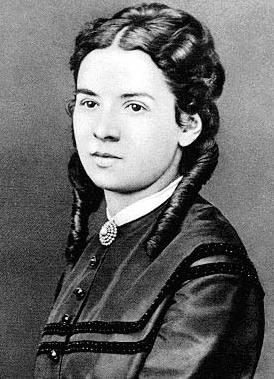 Munich 1972 was
the first Olympics I remember. Aged 8 I have hazy memories of Olga Korbut in
the ring, Lasse Viren and Valery Borzov on the track, Mark Spitz in the pool
and hooded men in the Village. The Palestinian involvement was an early indication to me the Olympics was about far more than just sport. Here in the middle of the Cold War, the US and
USSR were once again battling for supremacy in Germany.
Munich 1972 was
the first Olympics I remember. Aged 8 I have hazy memories of Olga Korbut in
the ring, Lasse Viren and Valery Borzov on the track, Mark Spitz in the pool
and hooded men in the Village. The Palestinian involvement was an early indication to me the Olympics was about far more than just sport. Here in the middle of the Cold War, the US and
USSR were once again battling for supremacy in Germany.
Only six nations nations have topped the OIympic medal tally: USA (16), Soviet Union (7), China (1), Germany (1), France (1) and Britain (1). The US dominated most of the 20th century but the Russians beat them in
1956 and 1960. As the space race intensified, the US regained control in the
1960s. By Munich it
was the turn of the USSR to come out ahead again. I remember this
strange thing called “East Germany” with their forbidding looking athletes running a very creditable third well
ahead of their western rivals despite a population of just 16 million people to the West's 50 million plus.
They would rub salt in fellow German wounds with another home soil victory in
the World Cup two years later in the only time they would ever meet (the West
lost that battle but won the war against the Dutch in the final).
With the
pride of communism on the line, the 70s and 80s were the glory era of East
German sport. It was the German College for Physical Culture which produced with ruthless efficiency the coaches, trainers and sports medicine personnel responsible for East Germany's remarkable success. There was drugs and
cheating there but there was also genuine success. The problem was, as 1980 Olympic
110-metre hurdles gold medallist Thomas Munkelt said, “we ran our sports by
the performance principle, but not our economy."
The 1980
Olympics was East Germany’s first high water mark. It was also the year any
doubt the Olympics wasn’t political was wiped out with the west’s boycott after Afghanistan. Without the US, the East Germans ran second to the Russians.
The Russians got their own back and boycotted Los Angeles in 1984. They cited “security
concerns, chauvinistic sentiments and an anti-Soviet hysteria whipped up in the
United States” but no one was in any doubt it was tit-for-tat.
Little brother East Germany wasn't there either but Ceausescu’s Romania
was the one Communist Bloc that ignored Konstantin Chernenko’s directive and they finished second to the Americans. 1984 was notable for another
reason. Five years earlier, the IOC decided to rename the Republic of China to Chinese
Taipei. With Taiwan downgraded, China would not lose face by competing for the
first time since 1952. They finished a
creditable fourth in their first outing.
The Seoul
Olympics in 1988 was the first truly global Olympics. It was also the first since
Montreal to feature the US and the Soviets. East Germany were there too and
they forced the Americans into third place. Other eastern bloc countries in the
top ten were Hungary, Bulgaria and Romania. The Chinese dropped to 11th.
But East
Germany’s second high water mark was to mark a rapidly changing tide.
The
stunning collapse of Eastern bloc Communism meant the medal table in Barcelona
looked radically different. The USSR was the last to go in 1991 so there was
still a strong “Unified Team” consisting of 12 of the old 15 Soviet republics. They were still unified enough
to win the most medals a year later. It would be the last time Moscow would
finish in front. East Germany was gone and China was back up to fourth
behind the united Germany. There was still an East German clone in Barcelona as
one of the last of the Communist countries Cuba finished fifth.
There was further
change in the New World Order of Atlanta 1996. On home soil, the Americans finally
beat the Russians for the first time since 1968. China stayed fourth but cut
the gap on Germany as they were doing in the real world. In Sydney, China beat
Germany and got the same amount of medals as the hosts (58) but with 28 golds to Australia’s
16. At Athens, China went clear as number two to the Americans. They got fewer medals than the
Russians but as they did in Sydney, they knew how to get gold.
In Beijing
they did to the Americans what they did to the Russians four years before. The
US had 110 medals to China’s 100 but it was 51-36 to the hosts in golds. China’s remarkable powerhouse economic advance
was on display in Beijing and the last four years have accelerated the trend. it will be no surprise, that even without home advantage, they get more medals
and golds than anyone else in London.
Sure enough,
they have won the first gold of the 2012 Olympics (though arguably that honour belongs to Specsavers). Top-ranked Yi Siling of China captured the first gold medal of the London Olympics
in the women's 10-metre air rifle at Royal Artillery Barracks on Saturday. Another
Chinese woman, Yu Dan won the bronze. If
the 21st century is the Asian century, then the place to watch for proof will be the Olympic Medal tally. It won’t be too long before the likes of
India and Indonesia become the new East Germany – but getting the economics
right as well as the sport.










